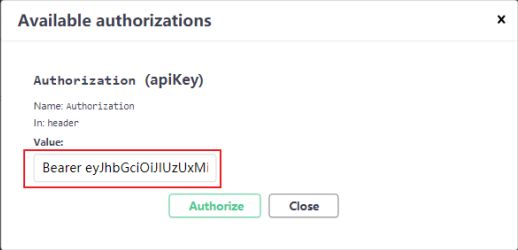之前项目中整合Swagger都是直接通过依赖springfox-swagger、springfox-swagger-ui两个jar包来实现的,最近发现springfox 3.0.0版本已经有了自己的SpringBoot Starter,使用起来更契合SpringBoot项目,非常方便,推荐给大家!
使用官方Starter
我们先使用官方Starter来整合Swagger看看是否够简单!
- 首先在
pom.xml中添加springfox官方Swagger依赖;
io.springfox
springfox-boot-starter
3.0.0
- 添加Swagger的Java配置,配置好Api信息和需要生成接口文档的类扫描路径即可;
/**
* Swagger2API文档的配置
*/
@Configuration
public class Swagger2Config {
@Bean
public Docket createRestApi() {
return new Docket(DocumentationType.SWAGGER_2)
.apiInfo(apiInfo())
.select()
.apis(RequestHandlerSelectors.basePackage("com.mybatis.plus"))
.paths(PathSelectors.any())
.build();
}
private ApiInfo apiInfo() {
return new ApiInfoBuilder()
.title("SwaggerUI演示")
.description("Spring Boot Swagger2 构建把把智能")
.contact(new Contact("wlb", null, null))
.version("1.0")
.build();
}
}注:这里不再需要 @EnableSwagger2注解
- 访问API文档信息,访问地址:http://localhost:8080/swagger-ui/
- 两步即可搞定SpringBoot集成Swagger,是不是很简单!
与之前版本相比
之前我们使用的是springfox 2.9.2版本,接下来对比下3.0.0的SpringBoot Starter使用,看看有何不同!
- 旧版本需要依赖
springfox-swagger2和springfox-swagger-ui两个配置,新版本一个Starter就搞定了,而且之前的版本如果不使用新版本的swagger-models和swagger-annotations依赖,访问接口会出现NumberFormatException问题;
io.springfox
springfox-swagger2
io.swagger
swagger-annotations
io.swagger
swagger-models
io.springfox
springfox-swagger-ui
io.swagger
swagger-models
1.6.0
io.swagger
swagger-annotations
1.6.0
- 新版本去除了一些第三方依赖,包括
guava,之前使用旧版本时就由于guava版本问题导致过依赖冲突,具体可以看下《给Swagger升级了新版本,没想到居然有这么多坑!》; - 新版本和旧版本文档访问路径发生了变化,新版本为:http://localhost:8080/swagger-ui/ ,旧版本为:http://localhost:8080/swagger-ui.html
- 新版本中新增了一些SpringBoot配置,
springfox.documentation.enabled配置可以控制是否启用Swagger文档生成功能; - 比如说我们只想在
dev环境下启用Swagger文档,而在prod环境下不想启用,旧版本我们可以通过@Profile注解实现;
@Configuration
@EnableSwagger2
@Profile(value = {"dev"})
public class Swagger2Config {
}- 新版本我们在SpringBoot配置文件中进行配置即可,
springfox.documentation.enabled在application-dev.yml配置为true,在application-prod.yml中配置为false。
整合Spring Security使用
我们经常会在项目中使用Spring Security实现登录认证,接下来我们来讲下如何使用Swagger整合Spring Security,实现访问需要登录认证的接口。
- 如何访问需要登录认证的接口?只需在访问接口时添加一个合法的
Authorization请求头即可,下面是Swagger相关配置;
/**
* Swagger2API文档的配置
*/
@Configuration
public class Swagger2Config {
@Bean
public Docket createRestApi() {
return new Docket(DocumentationType.SWAGGER_2)
.apiInfo(apiInfo())
.select()
.apis(RequestHandlerSelectors.basePackage("com.mybatis.plus"))
.paths(PathSelectors.any())
.build()
//添加登录认证
.securitySchemes(securitySchemes())
.securityContexts(securityContexts());
}
//构建 api文档的详细信息函数
private ApiInfo apiInfo() {
return new ApiInfoBuilder()
//页面标题
.title("Spring Boot Swagger2 构建把把智能")
//条款地址
.termsOfServiceUrl("http://despairyoke.github.io/")
.contact(new Contact("wlb", null, null))
.version("1.0")
//描述
.description("API 描述")
.build();
}
private List securitySchemes() {
//设置请求头信息
List result = new ArrayList<>();
ApiKey apiKey = new ApiKey("Authorization", "Authorization", "header");
result.add(apiKey);
return result;
}
private List securityContexts() {
//设置需要登录认证的路径
List result = new ArrayList<>();
result.add(getContextByPath("/brand/.*"));
return result;
}
private SecurityContext getContextByPath(String pathRegex) {
return SecurityContext.builder()
.securityReferences(defaultAuth())
.forPaths(PathSelectors.regex(pathRegex))
.build();
}
private List defaultAuth() {
List result = new ArrayList<>();
AuthorizationScope authorizationScope = new AuthorizationScope("global", "accessEverything");
AuthorizationScope[] authorizationScopes = new AuthorizationScope[1];
authorizationScopes[0] = authorizationScope;
result.add(new SecurityReference("Authorization", authorizationScopes));
return result;
}
} - 我们需要在Spring Security中配置好Swagger静态资源的无授权访问,比如首页访问路径
/swagger-ui/;
package com.spring.security.demo.config;
import com.spring.security.demo.security.JwtAuthenticationFilter;
import com.spring.security.demo.security.JwtAuthenticationProvider;
import com.spring.security.demo.security.JwtLoginFilter;
import org.springframework.beans.factory.annotation.Autowired;
import org.springframework.context.annotation.Bean;
import org.springframework.context.annotation.Configuration;
import org.springframework.http.HttpMethod;
import org.springframework.security.authentication.AuthenticationManager;
import org.springframework.security.config.annotation.authentication.builders.AuthenticationManagerBuilder;
import org.springframework.security.config.annotation.method.configuration.EnableGlobalMethodSecurity;
import org.springframework.security.config.annotation.web.builders.HttpSecurity;
import org.springframework.security.config.annotation.web.configuration.EnableWebSecurity;
import org.springframework.security.config.annotation.web.configuration.WebSecurityConfigurerAdapter;
import org.springframework.security.core.userdetails.UserDetailsService;
import org.springframework.security.web.authentication.UsernamePasswordAuthenticationFilter;
import org.springframework.security.web.authentication.logout.HttpStatusReturningLogoutSuccessHandler;
@Configuration
@EnableWebSecurity
@EnableGlobalMethodSecurity(prePostEnabled = true)
/**
* 对SpringSecurity的配置的扩展,支持自定义白名单资源路径和查询用户逻辑
*/
public class SecurityConfig extends WebSecurityConfigurerAdapter {
@Autowired
private UserDetailsService userDetailsService;
@Override
public void configure(AuthenticationManagerBuilder auth) throws Exception {
// 如果直接定制UserDetailsService ,而不自定义 AuthenticationProvider,可以直接在配置文件 WebSecurityConfig 中这样配置。
// 指定自定义的获取信息获取服务
// auth.userDetailsService(userDetailsService);
// 使用自定义登录身份认证组件----> 指定了自定义身份认证组件 JwtAuthenticationProvider,并注入 UserDetailsService auth.authenticationProvider(new JwtAuthenticationProvider(userDetailsService));
}
@Override
protected void configure(HttpSecurity http) throws Exception {
// 禁用 csrf, 由于使用的是JWT,我们这里不需要csrf
http.cors().and().csrf()
.disable()
.sessionManagement()// 基于token,所以不需要session
.sessionCreationPolicy(SessionCreationPolicy.STATELESS)
.and()
.authorizeRequests()
.antMatchers(HttpMethod.GET, // 允许对于网站静态资源的无授权访问
"/",
"/swagger-ui/",
"/*.html",
"/favicon.ico",
"/**/*.html",
"/**/*.css",
"/**/*.js",
"/swagger-resources/**",
"/v2/api-docs/**"
)
.permitAll()
.antMatchers("/login")// 对登录注册要允许匿名访问
.permitAll()
.antMatchers(HttpMethod.OPTIONS)//跨域请求会先进行一次options请求
.permitAll()
.anyRequest()// 除上面外的所有请求全部需要鉴权认证
.authenticated();
// 退出登录处理器
http.logout().logoutSuccessHandler(new HttpStatusReturningLogoutSuccessHandler());
// 开启登录认证流程过滤器----> 指定了登录认证流程过滤器 JwtLoginFilter,由它来触发登录认证
// http.addFilterBefore(new JwtLoginFilter(authenticationManager()), UsernamePasswordAuthenticationFilter.class);
// 访问控制时登录状态检查过滤器----> 指定了访问控制过滤器 JwtAuthenticationFilter,在授权时解析令牌和设置登录状态
http.addFilterBefore(new JwtAuthenticationFilter(authenticationManager()), UsernamePasswordAuthenticationFilter.class);
}
//初始化authenticationManager
@Bean
@Override public AuthenticationManager authenticationManager() throws Exception {
return super.authenticationManager();
}
}- 调用登录接口获取token,账号密码为
admin:123456; - 点击
Authorize按钮后输入Authorization请求头,之后就可以访问需要登录认证的接口了。
总结
Swagger官方Starter解决了之前整合Swagger的一系列问题,简化了SpringBoot整合Swagger的过程,使用起来更加方便了。同时对于一些复杂的配置使用基本没有变化,一些之前的使用方式依然可以使用!

